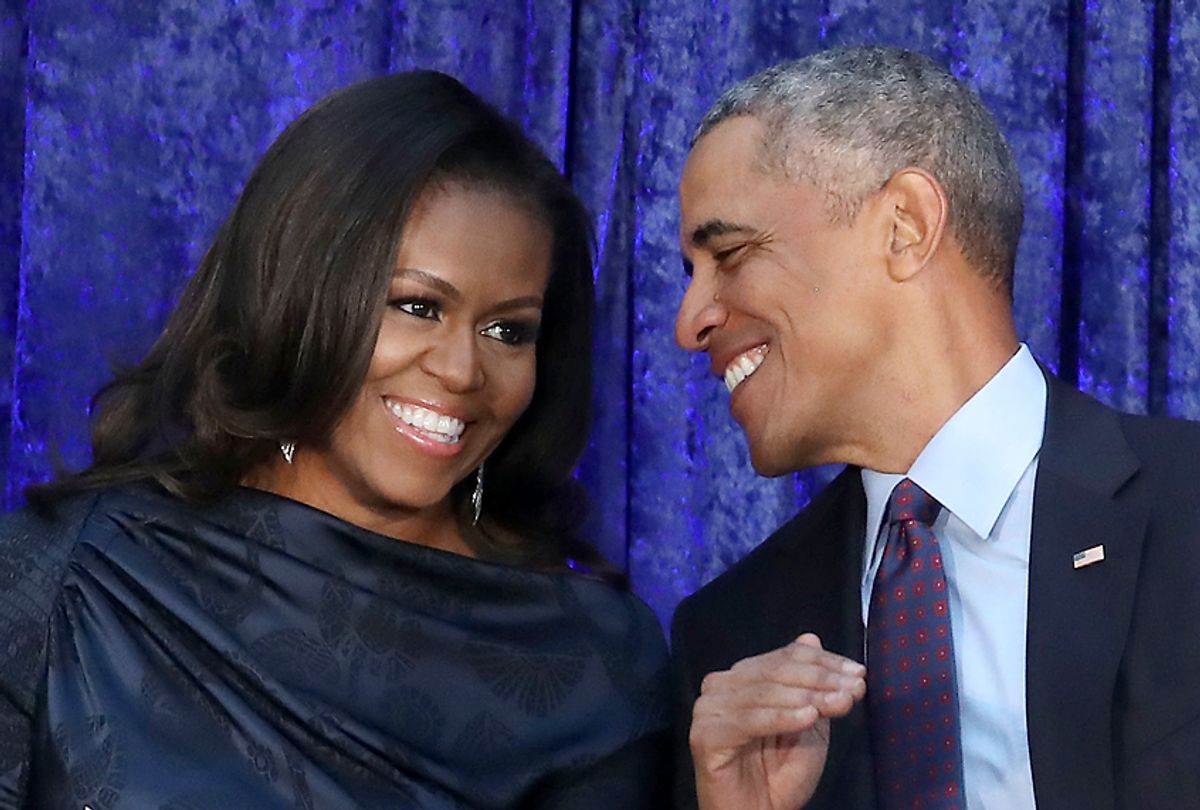Because the Christian Right is so loud and obnoxious and President Donald Trump is so strident about supporting them, it is easy to forget that not everyone who goes to church is a card-carrying Republican or a far-right Christian fundamentalist. But evangelical Trump allies like Jerry Falwell, Jr., the Rev. Franklin Graham and Dr. James Dobson (founder of Focus on the Family) only represent a particular form of Protestant Christianity — and not everyone who goes to church shares their fundamentalist beliefs. Within Christianity, there are deep divisions between what are called “Mainline Protestants” (Lutherans, Episcopalians, members of the AME Church and other non-fundamentalists) and fundamentalist white evangelicals. The divisions are not only religious, but also, political. And even though they don’t make as much noise as Trump and his white evangelical allies, there are plenty of non-fundamentalist Christians who believe that the Democratic Party is quite compatible with the teachings of Christianity.
Here are some prominent Democrats of faith.
1. Barack and Michelle Obama
The Christian Right considers Trump a major ally and views former President Barack Obama as their enemy, which is ironic in light of the fact that Obama and his wife, former First Lady Michelle Obama, have a long history of attending church while Trump has never been especially religious. But then, the Christian Right are bitterly tribalist in their view of the world — and they don’t consider Mainline Protestants like the Obamas to be part of their tribe. To the Christian Right, Mainline Protestants might as well be atheists. But the Obamas, who have spent plenty of time visiting African-American churches, obviously don’t see Christianity as something that only white fundamentalist evangelical Republicans can be a part of.
2. Pete Buttigieg
South Bend, Indiana Mayor Pete Buttigieg, a churchgoing Episcopalian, doesn’t use his faith to abuse others — unlike the Christian Right. And he has no problem with Judaism, Islam, Hinduism and other faiths. But the Democratic presidential candidate isn’t shy about discussing his faith either. And the division between the Christian Right and Mainline Protestantism was evident when, on April 7, RedState’s Erick Erickson claimed that because Buttigieg is an Episcopalian, he isn’t a true Christian.
Erickson tweeted, “If Buttigieg thinks evangelicals should be supporting him instead of Trump, he fundamentally does not understand the roots of Christianity. But then, he is an Episcopalian. So, he might not actually understand Christianity more than superficially.”
Erickson’s comment speaks volumes about the tribalist mentality of the Christian Right. To Erickson, only far-right white fundamentalists can be true Christians.
3. The Rev. Al Sharpton
The Rev. Al Sharpton, who hosts “Politics Nation” on MSNBC, is both an ordained minister and an in-your-face liberal — and in the African-American community, that is not an unusual combination by any means. Black AME (African Methodist Episcopal) and Lutheran congregations have a long history of liberal/progressive activism. And Sharpton obviously has a very different set of priorities from Falwell or Dobson: as he sees it, economic justice for the poor, civil rights, housing discrimination and universal health care are the types of issues people of faith should be addressing.
4. Sister Mary Scullion
A wide variety of political views can be found among Catholic Christians, from the right-wing paleoconservatism of Patrick Buchanan (a major influence on Trump) to the Democratic centrism of former Vice President Joe Biden to the liberal/progressive activism of Sister Mary Scullion — who is both a Catholic nun and an outspoken liberal. In Philadelphia, where she is based, Scullion has a long history of liberal activism: homelessness, poverty, civil rights and health care have been some of her big issues. And Scullion has no use whatsoever for the Prosperity Gospel, a school of thought within Protestant evangelical Christianity that equates wealth and affluence with morality and poverty with immorality. To Scullion, the Prosperity Gospel is absolute nonsense and has no basis in biblical teachings.
5. Sen. Sherrod Brown
Sen. Sherrod Brown of Ohio doesn’t beat voters over the head with his faith, but he’s happy to discuss it if they bring it up. The liberal Democratic senator is a Mainline Protestant — specifically, a Lutheran — and at times, he has discussed the connection between liberal/progressive politics and Christianity. Although Brown has noted that while “we Democrats seldom talk about our faith,” he has also discussed scripture when the subject came up — noting, “Here’s what Jesus said: ‘When I was hungry, you fed me. When I was thirsty, you gave me drink. When I was a stranger, you welcomed me.’” In other words, Brown views Christianity as a blueprint for economic justice — which is a long way from the Prosperity Gospel and the worship of money and power that the Christian Right champions.


Shares